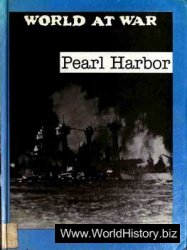ANNE DEIGHTON
In 1945, Britain was an activist world power. It possessed the world’s second-largest national navy, and its Empire-Commonwealth was genuinely global. The Dominions stretched from Canada to Australia, New Zealand, and South Africa; it had colonial possessions from the north to the south of the African continent, to the east of Suez, in South and Southeast Asia, as well as many scattered, and often strategic, island outposts. The 'jewel in the crown’ of the Empire was India.
On VE Day, 8 May 1945, Britain and its loyal Empire-Commonwealth had 4 million troops serving overseas for the Allied cause. Wartime summit meetings had reinforced both the reality and the image of a Britain as a world power as Prime Minister Winston Churchill and President Franklin D. Roosevelt of the United States parleyed with the Soviet leader, Iosif Stalin, while the tide of fighting brought them all towards victory. It was therefore inevitable that the British would have a large role in shaping the untidy transition that was to come, and that would transform the world from war to an uncertain peace.
Leading British decision-makers assessed early on that they would have to base postwar foreign policy both on the threat from Communist ideology and on the consequences of the arrival of the Soviet Union as the new great power on the world stage. Britain would have to take a leading role to ensure that at least the western part of Germany - the motor of the European economy - was secured against Communism. It could then be revived for the Western and capitalist part ofEurope through the Marshall aid programme. The British were also to play a major role in the creation of the North Atlantic Treaty (1949) which was to bind the other great global power, the United States, to the defence of the West against the Soviets and their allies. By 1955, the British had committed themselves to a military presence on the ground in West Germany.
Sustaining great power status in the face of these new ideological and power-political threats took other forms, too. First was the expensive but most secret decision to go nuclear. This was made less than two years after the end of the war, with a second generation of atomic weaponry then being developed by 1955. On the 'home front’, a necessary part of the emerging Cold War strategy was to secure the hearts and minds of the population in Britain and the Empire against the baleful tenets of Communism. This strategy can be seen as an echo of the domestic politics of the Second World War that had successfully secured the British 'home front’ against Nazism.
So for Labour (1945-51) and Conservative (1951-55) governments, the defining trait of foreign policy was to maintain Britain’s place as a major global and imperial power in a rapidly changing period of fresh ideological and power-political challenges. It is fair to argue that this priority would still have existed in Britain even if the Soviet Union had withdrawn from active international politics immediately after the war. The quest to sustain the image and the reality of great powerdom through leadership, influence, and 'punching

7. Ernest Bevin (left) and Clement Attlee, Labour’s foreign secretary and prime minister, at the first meeting of the United Nations General Assembly in London, 1946.
Above our weight’ was part of the mentalite of British planners, the military, and the politicians.
Yet this was not a straightforward policy, because Britain’s own weak financial position would now force an extraordinarily rapid process of decolonisation. Over this period Britain retreated from India, Ceylon, Burma, Palestine, Ireland, and the Suez Canal zone in Egypt, while preparations for the end of imperial management were begun in Malaya and in West, Central, and East Africa. While the nature of imperial rule varied from country to country, and each country presented different challenges and possible solutions, the fear always remained that the Soviet Union might move in to fill a power vacuum or to disrupt a defensive base. So British imperial policies did not come to an end just because Britain had divested itself of some of its possessions.129 The Middle East and Far East remained key bastions of empire, and Britain committed large numbers of troops to many areas, including Palestine, Malaya, and Kenya, over the decade. Indeed, the ending of empire was conceptualised and presented as a necessary modernisation. Adaptation to the new concept of commonwealth was conceived as nothing less than a 'world wide experiment in nation-building’. It was an attempt to create a set of global partnerships with new Commonwealth countries that would shore up the West, and that would be part of a 'global resistance to the "onrush" of communist influence’, which was as much feared as was indigenous nationalism and communal violence.130




 World History
World History









